I have been thinking about what can I do to raise the awareness of PTSD, stress, anxiety and depression (and a myriad of other psychological disorders) which are the result of policing.
Yes, the 801 Group is a great start – not only that, but I have met some really strong people as a result, through doing nothing other than stepping forward. They have inspired me to continue trying to make it better for those already suffering and hopefully prevent a few from suffering in the future.
(NB: The ‘801 Group’ is for police suffering from psychological injuries as a result of their duties and was founded about a year ago in Adelaide. Regular meetings are held and a private Facebook page exists with over 200 members – mates helping mates…)
But how?
I think one of the biggest problems is the problem that faces us all when we are trying to understand something that we have no experience of, other than observing, or what the media (The Merchants of Misery) tell us; that is, how can we possible understand what it feels like.
This is also one of the reasons the 801 Group works so well. As soon as you walk into the room at a meeting you realise that everyone there understands. You don’t 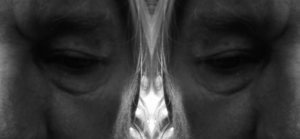 really have to say anything. You just know they know. A lot of this is in the eyes….
really have to say anything. You just know they know. A lot of this is in the eyes….
So how can a policing culture change, attitudes change, if it is impossible to understand what it feels like, what people are going through, unless you experience it yourself – and without being too dramatic, then it is probably too late.
I will try using an old analogy.
It’s like the feeling of riding a Harley; if I try to explain it to you, no explanation is possible; but once you have ridden a Harley, well, then no explanation is necessary.
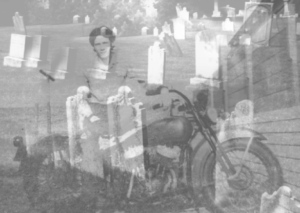 Of course this analogy can easily be dismissed by those who have no interest in motorbikes. So, how about making it a little more personal, even a little bit too close to home.
Of course this analogy can easily be dismissed by those who have no interest in motorbikes. So, how about making it a little more personal, even a little bit too close to home.
I will try to explain to you what it feels like to have a parent die – your Mum or Dad. We all think about this as it is inevitable, we all think we are prepared… right up until it happens. Then we suddenly realise that at all those funerals we have been to, for our mates’ Mums and Dads, we really had no idea. My Dad died 25 years ago and I remember it like yesterday. My Mum only died a couple of years ago – I thought I was prepared after Dad’s passing. Wrong! It was the belief that I knew what it was like being shattered when Mum actually passed away – only then did I actually understand.
If you have had a parent die, you understand the above paragraph completely. If you haven’t, I am happy for you, but I am also completely aware, that no matter how much you tell me you understand what it feels like, I know you are wrong. You are not ‘wrong’ in a bad way, you are just wrong because until it happens to you, you really can’t fully understand.
This is just like me telling a parent who has lost a child that I know what it feels like. Sorry, but this is bullshit. I can never know unless it happens to me.
These are all pretty sad, even cruel, analogies to attempt to try to explain to someone what it is like to suffer from PTSD, stress, anxiety or depression resulting from police work. But, I think it goes a little towards actually explaining it – the ‘it’ being that you can’t explain ‘it’.
So I believe that it is not the understanding that is important, I have just noted that this is impossible, it is the knowledge and acceptance that you can’t understand that is important.
Only those who have suffered can understand.
Often in the Police we see horrific things happen to people – we attempt to empathise with them, help them, protect them or take action. But, do we ever really feel like that victim or that offender, until it is us.
Let’s talk about the offenders. How many in our policing careers have we arrested; or kicked their doors down, or put them on the ground in handcuffs, or refused their bail, and locked them up for months awaiting trial.
We take the above actions, go back and type up the file and then decide what we are going to have for dinner. Do we think about them every day, that guy or girl 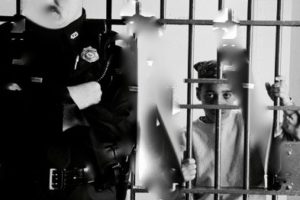 sitting in a cell, away from their family, missing birthdays, Christmas, their kids, or Mum and Dad and possibly losing their job, friends, reputation? Of course we don’t! The next time we think of them is when we are called to do the court file, and mainly we are shitty that they didn’t plead guilty and save us all the paperwork. So we sit down and finish the file and send it off – then, again we decide what we are going to have for lunch. Do we think of them, the person, the father, mother, wife, husband, sitting in that cell, of course not. Why not? Because it is not us.
sitting in a cell, away from their family, missing birthdays, Christmas, their kids, or Mum and Dad and possibly losing their job, friends, reputation? Of course we don’t! The next time we think of them is when we are called to do the court file, and mainly we are shitty that they didn’t plead guilty and save us all the paperwork. So we sit down and finish the file and send it off – then, again we decide what we are going to have for lunch. Do we think of them, the person, the father, mother, wife, husband, sitting in that cell, of course not. Why not? Because it is not us.
All this is the difficulty in our modern world… most of the time it is not us, we are glad it is not us, and if we turn our head just a little bit, we don’t even have to see it in our peripheral vision. It’s just not there, it’s just not something we have to consider in our daily lives of getting the kids to school, making ends meet and trying to live our normal life. Yeah, it is a great 5 second grab on the news, or a 7 minute story on Today Tonight, or a ‘shock horror’ moment on the front page of the paper, but then life goes on.
It is not us, and we are glad. It is not us, so how can we possibly understand what it feels like. We are still living our lives.
This IS the problem with the psychological injuries plaguing the Police, but, it is worse; why?
Because the Police are supposed to weather all storms of physical and psychological attack – they are tough men and women protecting the rest of us. It is their job, their duty and if they fail who do we turn to.
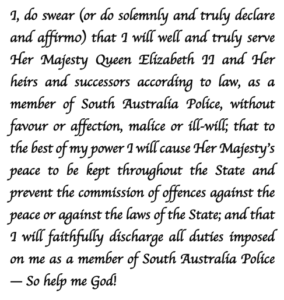 So, when the strongest, most resilient and bravest of us all fail, who do we turn to. The Police, the individual Police Officer, feels this every day. They feel it as they are in one of the few ‘jobs’ that require you to take an oath; an oath that says you will give it your all, you will, if required, give it your life.
So, when the strongest, most resilient and bravest of us all fail, who do we turn to. The Police, the individual Police Officer, feels this every day. They feel it as they are in one of the few ‘jobs’ that require you to take an oath; an oath that says you will give it your all, you will, if required, give it your life.
So the Police, the strongest of us, must not fail, must not fall by the wayside physically or psychologically. I’m not saying that everyday the police who go out there are swearing new allegiance to the people, cheering in unison to fight for the downtrodden, putting on battle armour and raising battle standards… but, somewhere, deep inside each of them they know it is not a job, it is a duty, it is a sworn duty and they cannot fail.
Unfortunately in a war of attrition against crime, some are left behind. It is not the callous moving forward while our comrade lays wounded on the ground. It is not disregarding the old saying of ‘no man left behind’. It is the reality of not wanting to look at our mates failing, crumbling, crying, drinking, angry, afraid, lost, lonely… because, we may be next. It embarrasses them and it embarrasses us, we don’t know what to do, we don’t understand.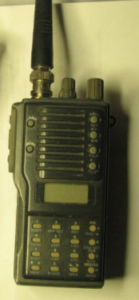
And the next day they are not there, the boss is calling the roll, my stats are behind, that brief of evidence isn’t finished, there are new jobs waiting and a pile of old jobs unfinished. I think of them fleetingly, but I don’t understand and I don’t know what to do.
The radio screams for my attention, someone needs me who I am sworn to protect.
“Roger, I’m on my way…”
Like this:
Like Loading...

 No.
No.




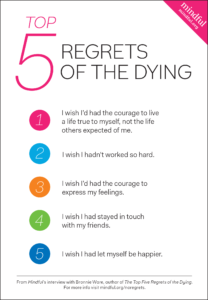 dash between the date of my birth and the date of my death well.
dash between the date of my birth and the date of my death well.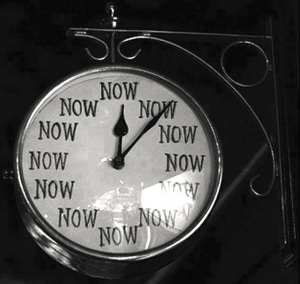







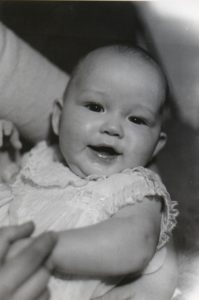
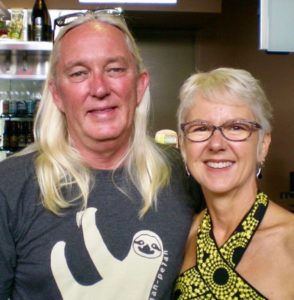


 Of course this analogy can easily be dismissed by those who have no interest in motorbikes. So, how about making it a little more personal, even a little bit too close to home.
Of course this analogy can easily be dismissed by those who have no interest in motorbikes. So, how about making it a little more personal, even a little bit too close to home. sitting in a cell, away from their family, missing birthdays, Christmas, their kids, or Mum and Dad and possibly losing their job, friends, reputation? Of course we don’t! The next time we think of them is when we are called to do the court file, and mainly we are shitty that they didn’t plead guilty and save us all the paperwork. So we sit down and finish the file and send it off – then, again we decide what we are going to have for lunch. Do we think of them, the person, the father, mother, wife, husband, sitting in that cell, of course not. Why not? Because it is not us.
sitting in a cell, away from their family, missing birthdays, Christmas, their kids, or Mum and Dad and possibly losing their job, friends, reputation? Of course we don’t! The next time we think of them is when we are called to do the court file, and mainly we are shitty that they didn’t plead guilty and save us all the paperwork. So we sit down and finish the file and send it off – then, again we decide what we are going to have for lunch. Do we think of them, the person, the father, mother, wife, husband, sitting in that cell, of course not. Why not? Because it is not us.

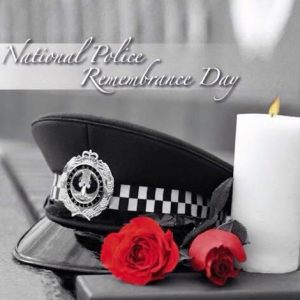 So, I was wondering how I was going to explain the word ‘duty’.
So, I was wondering how I was going to explain the word ‘duty’.
 Example: the average dickhead will often have manipulated themselves into a position of authority . The reason this has happened is that everyone else thought that they were the only one that thought this person was a dickhead and didn’t want to speak out in the event that everyone else thought they were the dickhead. Hence the dickheads rule supreme because everyone else who is not a dickhead doesn’t want to be one. It is like the old catch 22 movie – in that you only realise you are a dickhead when you are not one, and if you are one you never realise you are.
Example: the average dickhead will often have manipulated themselves into a position of authority . The reason this has happened is that everyone else thought that they were the only one that thought this person was a dickhead and didn’t want to speak out in the event that everyone else thought they were the dickhead. Hence the dickheads rule supreme because everyone else who is not a dickhead doesn’t want to be one. It is like the old catch 22 movie – in that you only realise you are a dickhead when you are not one, and if you are one you never realise you are. e to your next tactic – just give them what they want. Sound absurd, but think about it. They are a dickhead and just want to keep asking you for things that you cannot give – so turn the tables on them and ask them what they want. When they request it, give it to them – dickhead problem solved as they have nothing to argue about. Of course most times it won’t get to this as merely asking them what they want will throw them into confusion as what they really want, deep down, it to shit you off and be a dickhead. Of course later on when it all turns to shit, you just blame them anyway as you used that magnificent get our of gaol free card… delegation.
e to your next tactic – just give them what they want. Sound absurd, but think about it. They are a dickhead and just want to keep asking you for things that you cannot give – so turn the tables on them and ask them what they want. When they request it, give it to them – dickhead problem solved as they have nothing to argue about. Of course most times it won’t get to this as merely asking them what they want will throw them into confusion as what they really want, deep down, it to shit you off and be a dickhead. Of course later on when it all turns to shit, you just blame them anyway as you used that magnificent get our of gaol free card… delegation.